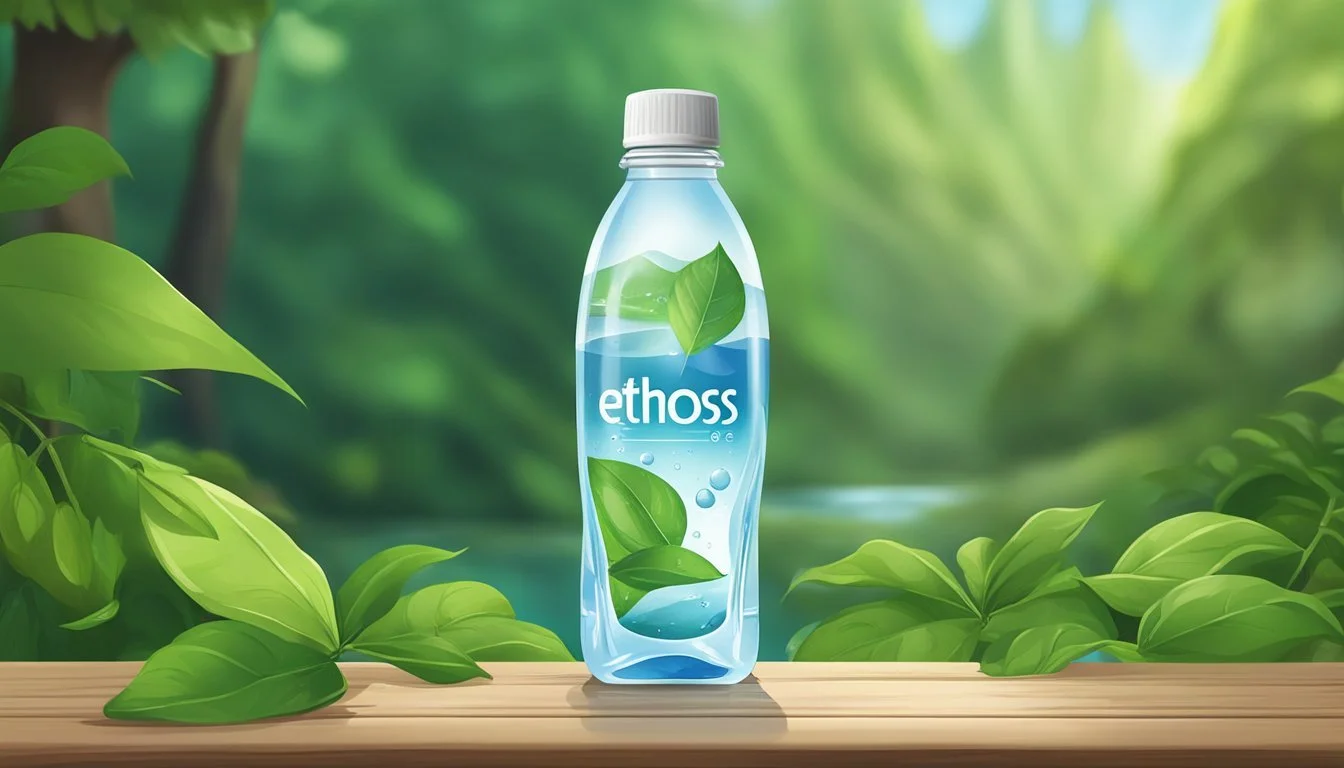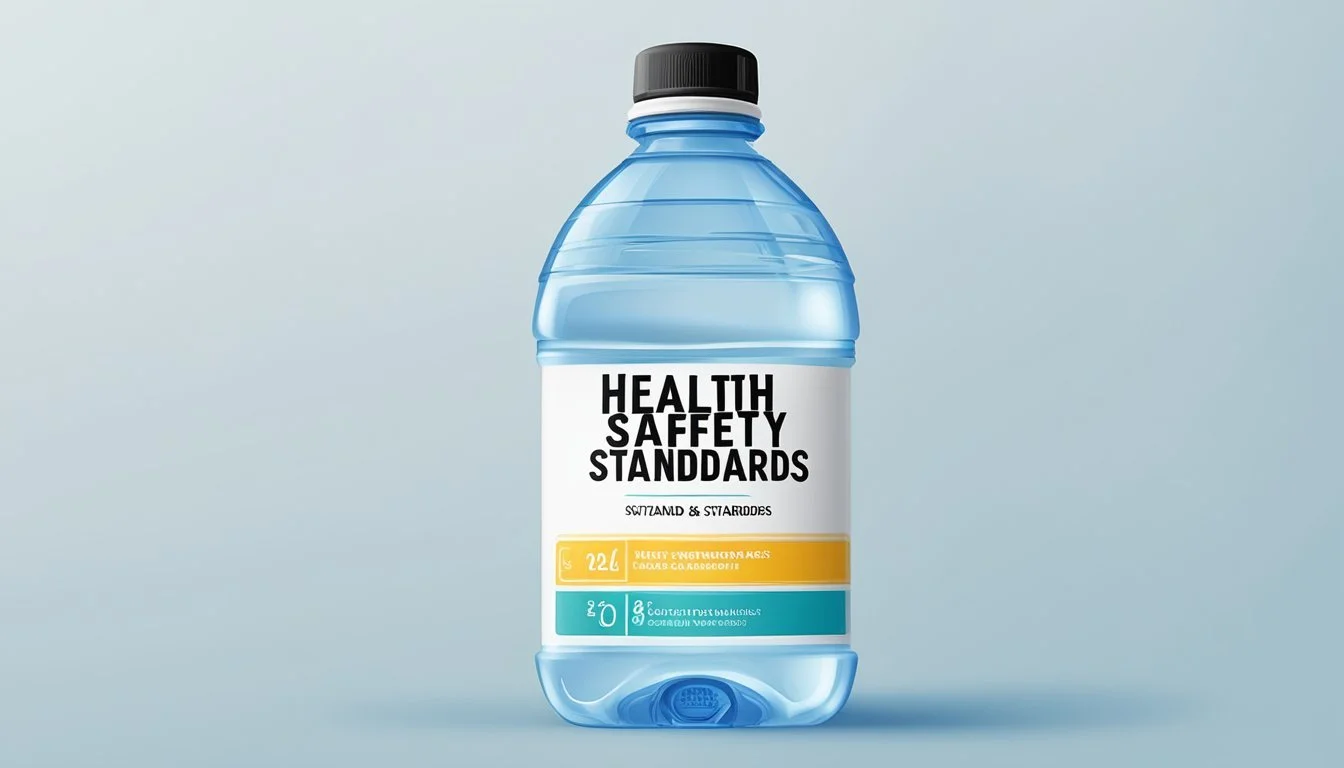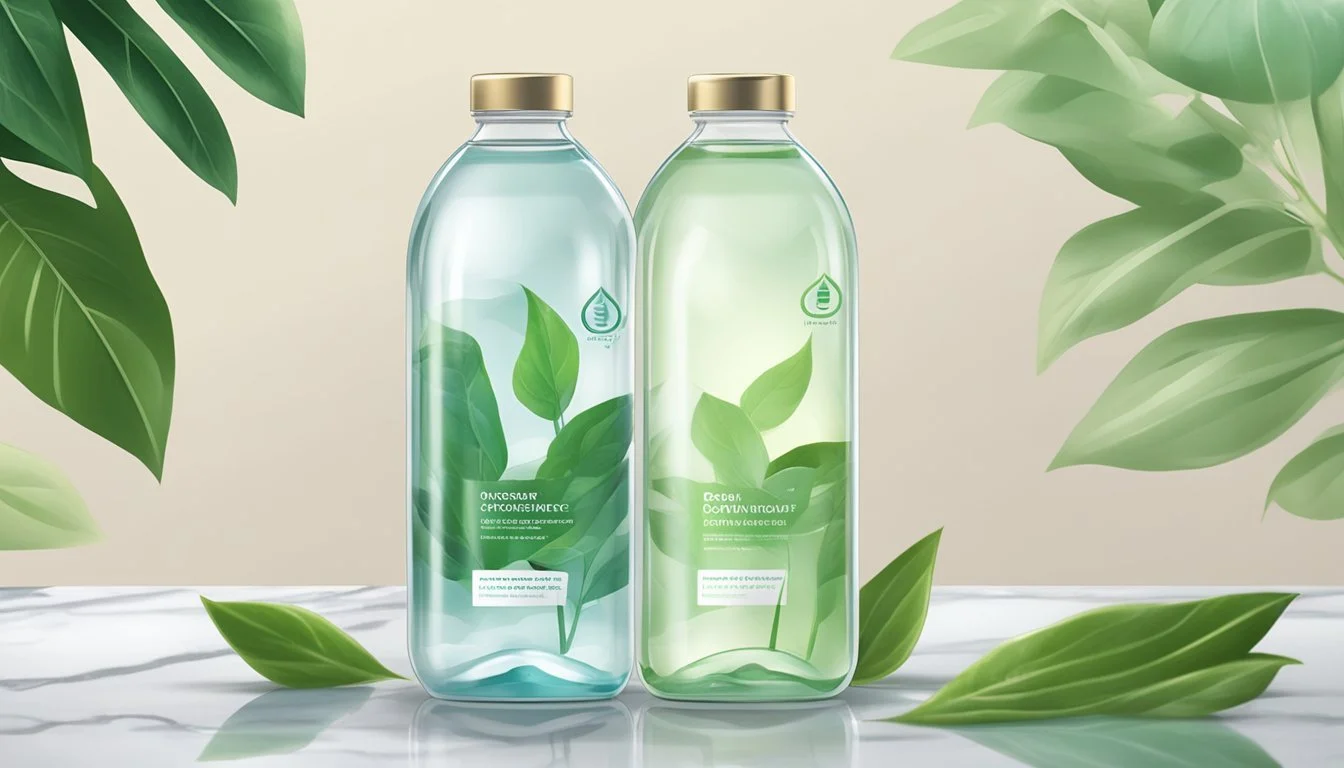Is Ethos the Best Bottled Water?
Sustainable Hydration for Conscious Consumers
Ethos bottled water is more than just a refreshing beverage. Owned by Starbucks since 2005, this brand aims to make a positive impact on global water scarcity issues. For every bottle of Ethos water purchased, Starbucks donates 5 cents to support humanitarian programs providing clean water in coffee-growing communities.
The concept for Ethos water originated in 2001 when Peter Thum witnessed the lack of access to clean water in South African communities. This experience inspired him to create a bottled water brand with a social mission. Ethos has since become a recognizable product in Starbucks locations across North America.
While Ethos water has gained popularity for its philanthropic goals, it's important to note that it remains a for-profit venture. The brand's success has led to significant revenue generation, with estimates suggesting earnings well into the millions. This dual nature as both a charitable endeavor and a profitable product has sparked discussions about the effectiveness and ethics of cause-related marketing in the bottled water industry.
Ethos Water: Origin and Brand Overview
Ethos Water emerged as a socially conscious bottled water brand with a mission to improve global access to clean water. The company's journey from startup to Starbucks subsidiary showcases its commitment to combining business with social impact.
Genesis of Ethos Water
Peter Thum founded Ethos Water in 2001 after witnessing water scarcity issues in South Africa. As a McKinsey & Company consultant, Thum recognized an opportunity to address the global water crisis through a commercial venture. He partnered with Jonathan Greenblatt to launch the brand.
Ethos Water's initial concept was simple yet powerful: sell bottled water to fund clean water projects in developing countries. The founders aimed to create a product that would raise awareness and provide tangible support for communities lacking access to safe drinking water.
Acquisition by Starbucks Corporation
Starbucks Corporation acquired Ethos Water in 2005, significantly expanding the brand's reach and impact. The coffee giant saw alignment between Ethos' mission and its own corporate social responsibility goals.
Under Starbucks' ownership, Ethos Water gained distribution in thousands of locations across the United States. This increased visibility helped amplify the brand's message and generate more funds for water projects.
Starbucks committed to continuing and enhancing Ethos Water's charitable efforts. The acquisition provided resources to scale up operations and increase contributions to clean water initiatives globally.
Ethos Water's Brand Philosophy
Ethos Water's core philosophy centers on the belief that businesses can be a force for positive change. The brand operates on a model where a portion of each bottle sold contributes to water, sanitation, and hygiene programs in water-stressed regions.
This approach allows consumers to make a difference through everyday purchases. Ethos Water emphasizes transparency, regularly reporting on the impact of its contributions and the communities benefiting from its projects.
The brand also focuses on educating consumers about global water issues. Through its packaging and marketing, Ethos Water aims to raise awareness and inspire action beyond just purchasing their product.
Product Analysis
Ethos bottled water stands out in the competitive market through its unique combination of quality, design, and social impact. The product's attributes encompass its water source, packaging approach, and taste profile.
Source and Quality of Ethos Bottled Water
Ethos water originates from carefully selected natural springs. The company prioritizes water purity, employing a rigorous filtration process to ensure high-quality standards. This process includes natural filtration through layers of volcanic rock, which enhances the water's mineral content.
The purification method also incorporates advanced technologies like reverse osmosis. This multi-step approach removes potential contaminants while preserving beneficial minerals. As a result, Ethos water maintains a balanced pH level, typically ranging between 7.0 and 7.5.
Regular testing ensures consistency in quality and adherence to strict safety standards. The natural spring sources contribute to the water's crisp, clean taste.
Packaging and Design
Ethos water comes in recyclable plastic bottles, aligning with the brand's commitment to sustainability. The bottle design features a sleek, minimalist aesthetic with a distinctive blue label.
The packaging prominently displays the Ethos logo and highlights the brand's social mission. Each bottle includes information about the company's clean water initiatives, connecting consumers to the broader impact of their purchase.
Ethos offers various bottle sizes to cater to different consumer needs, from individual servings to larger formats for home or office use. The bottles are designed for durability and convenience, with easy-to-grip shapes and resealable caps.
Taste and Mineral Content
Ethos water boasts a clean, refreshing taste profile. The natural spring sources contribute to a subtle mineral flavor that distinguishes it from tap water. The balanced mineral content includes trace amounts of calcium, magnesium, and potassium.
These minerals not only enhance the taste but also provide potential health benefits. The water's neutral pH level contributes to its smooth, crisp character. Ethos water does not contain added flavors or sweeteners, appealing to consumers seeking a pure water experience.
Taste tests have shown that Ethos water compares favorably to other premium bottled water brands. Its mineral composition creates a pleasant mouthfeel without any overwhelming flavors or aftertastes.
Health and Safety Standards
Ethos bottled water adheres to strict health and safety standards to ensure clean, safe drinking water for consumers. The company employs advanced purification processes and complies with environmental regulations to maintain high water quality.
Water Purity and Processing
Ethos utilizes a multi-step purification process to deliver clean drinking water. This includes:
Filtration to remove particles and contaminants
Reverse osmosis to eliminate dissolved solids
UV light treatment to neutralize microorganisms
The company regularly tests its water for over 150 potential contaminants, exceeding FDA requirements. Ethos also monitors mineral content to ensure optimal taste and health benefits.
Quality control measures are in place throughout the bottling process. Automated systems and trained technicians oversee each stage to maintain consistency and prevent contamination.
Compliance with Environmental Regulations
Ethos follows strict environmental guidelines in its water sourcing and bottling operations. The company:
Adheres to sustainable water extraction practices
Implements water conservation measures in production facilities
Uses eco-friendly packaging materials
Regular audits ensure compliance with local and federal regulations. Ethos works closely with environmental agencies to monitor its impact on water sources and surrounding ecosystems.
The company invests in water replenishment projects to offset its water usage. These initiatives help protect watersheds and support local communities.
Social and Environmental Commitment
Ethos Water combines its commercial bottled water business with a strong dedication to addressing global water challenges. The brand integrates social responsibility and environmental stewardship into its core mission.
Ethos Water's Social Mission
Ethos Water was founded in 2002 with the goal of helping children access clean water. The company donates a portion of its proceeds to support water, sanitation, and hygiene programs in developing countries. After Starbucks acquired Ethos in 2005, this commitment expanded.
Ethos partners with humanitarian organizations to implement sustainable water projects. These initiatives focus on building wells, installing water purification systems, and improving sanitation facilities in communities facing water scarcity.
The brand's social mission extends beyond monetary donations. Ethos raises awareness about the global water crisis through its marketing and packaging.
Contribution to the Global Water Crisis
Ethos Water directs its philanthropic efforts towards regions severely affected by water scarcity. The brand has supported projects in various countries across Africa, Asia, and Latin America.
Through partnerships with NGOs and the Starbucks Foundation, Ethos has helped fund:
Construction of water wells in rural areas
Installation of rainwater harvesting systems
Implementation of community-based water management programs
Education initiatives on water conservation and hygiene practices
These efforts aim to provide long-term solutions to water access issues, impacting thousands of lives in underserved communities.
Environmental Initiatives and Sustainability
While focusing on social impact, Ethos Water also addresses environmental concerns associated with bottled water production. The brand has implemented several initiatives to reduce its ecological footprint:
Using recycled plastic in bottle production
Optimizing transportation routes to minimize carbon emissions
Supporting local recycling programs
Ethos encourages consumers to recycle their bottles and promotes responsible water consumption. The brand balances its commitment to providing clean drinking water with efforts to mitigate environmental impact.
Ethos continues to explore innovative packaging solutions and production methods to enhance its sustainability practices.
Ethical and Environmental Controversies
Ethos bottled water faces scrutiny over its environmental impact and sourcing practices. Critics question the sustainability of bottling water in drought-prone regions and the broader effects on local water supplies.
Water Source and Scarcity Issues
Ethos sources water from various locations, including drought-affected areas in California. The US Drought Monitor has consistently shown parts of California experiencing severe to extreme drought conditions. This raises concerns about the company's water extraction in water-scarce regions.
Bottling operations can potentially deplete local groundwater reserves. This is particularly problematic in areas already struggling with water scarcity. Environmental groups argue that commercial water bottling exacerbates existing water shortages and may negatively impact ecosystems dependent on these water sources.
Criticism of Corporate Water Bottling
The bottled water industry, including Ethos, faces criticism for its environmental footprint. Production and transportation of plastic bottles contribute to greenhouse gas emissions. Despite recyclable packaging, many bottles end up in landfills or as litter.
Critics argue that marketing bottled water as more pure or healthy than tap water is misleading. They contend that this practice encourages unnecessary consumption of bottled water in regions with safe, readily available tap water. Some environmental advocates push for increased investment in public water infrastructure instead of relying on bottled water companies.
Consumer Market
Ethos Water occupies a unique position in the bottled water market, appealing to socially-conscious consumers. Its pricing and availability strategies, as well as customer perceptions, play crucial roles in shaping its market presence.
Pricing and Availability
Ethos Water is primarily sold through Starbucks locations in the U.S. and Canada. The brand is priced at a premium compared to many other bottled water options. A typical 23.7 fl oz (700 ml) bottle costs around $2.50-$3.00.
This higher price point reflects the brand's social mission, with a portion of proceeds going towards clean water initiatives. Ethos is less widely available than mass-market brands like Dasani or Aquafina, which can be found in most grocery and convenience stores.
The limited distribution through Starbucks outlets creates an exclusive feel for the brand. This strategy aligns with its positioning as a premium, socially-responsible choice for consumers.
Customer Perception and Brand Reputation
Ethos Water has cultivated a reputation as a socially-conscious brand. Many customers view purchasing Ethos as a way to contribute to a worthy cause while staying hydrated.
The brand's association with Starbucks lends it credibility and visibility among coffee shop patrons. However, some consumers have questioned the effectiveness of its charitable model, arguing that direct donations might be more impactful.
Taste-wise, Ethos is generally perceived as a clean, crisp water. It doesn't have added minerals or flavoring, appealing to those who prefer a neutral taste.
Ethos faces competition from other cause-driven water brands and increasing consumer awareness about bottled water's environmental impact. This has led to ongoing discussions about the brand's overall sustainability and social impact.
Collaborations and Partnerships
Ethos Water has forged strategic alliances to expand its reach and impact in providing clean drinking water globally. These partnerships range from celebrity endorsements to collaborations with major retailers and charitable organizations.
Relationship with Global Water Advocates
Ethos Water has partnered with several high-profile advocates to raise awareness for clean water initiatives. Matt Damon, a prominent actor and philanthropist, has lent his voice to support Ethos Water's mission. His involvement has helped shine a spotlight on the brand's efforts to improve access to clean drinking water in developing countries.
The company has also collaborated with various water-focused charities. These partnerships have enabled Ethos to fund water programs in communities facing severe water scarcity. Through these joint efforts, Ethos has contributed to the construction of wells, water purification systems, and sanitation facilities in underserved areas.
Partnership with Retail Chains
Ethos Water's collaboration with Starbucks has been crucial to its distribution strategy. As a Starbucks subsidiary, Ethos products are prominently featured in Starbucks locations across the United States. This partnership has significantly boosted the brand's visibility and sales.
Beyond Starbucks, Ethos has secured shelf space in major retail chains like Safeway. These retail partnerships have expanded the brand's reach to a broader consumer base. By increasing its presence in grocery stores and supermarkets, Ethos has made it easier for customers to support its clean water initiatives through their everyday purchases.
Ethos has also explored collaborations with other beverage industry leaders. While not directly partnering with PepsiCo, the company has studied PepsiCo's sustainable water practices to enhance its own operations and impact.
Comparative Analysis
Ethos bottled water stands out in the competitive bottled water market through its unique philanthropic approach and product positioning. This analysis examines how Ethos compares to rival brands and evaluates its charitable efforts against other corporate giving initiatives.
Competitor Brands and Market Position
Ethos faces stiff competition from major players like Dasani, owned by Coca-Cola, and Pure Life, a Nestlé brand. Dasani holds a significant market share in the United States, particularly in urban areas like Seattle. Pure Life, meanwhile, has a strong global presence, including in South Africa.
Ethos differentiates itself through its social responsibility focus. While Dasani and Pure Life primarily compete on taste and price, Ethos emphasizes its clean water initiatives. This unique selling point attracts socially conscious consumers willing to pay a premium for bottled water that supports a cause.
In taste tests, Ethos often receives positive reviews for its smooth, refreshing profile. Its pricing typically falls between mass-market brands like Dasani and ultra-premium options.
Comparison with Other Philanthropic Efforts
Ethos' charitable model involves donating a portion of sales to water projects in developing countries. This approach differs from traditional corporate philanthropy, where companies allocate a set amount to charitable causes regardless of sales.
PepsiCo's partnership with Water.org and Nestlé's Community Water projects offer interesting comparisons. These initiatives involve direct investment in water infrastructure and education programs.
Ethos' model has the advantage of engaging consumers directly in the charitable process. Each purchase contributes to water projects, creating a tangible link between consumption and impact.
Critics argue that the overall impact of Ethos' giving may be smaller than large-scale corporate water initiatives. However, supporters praise the brand for raising awareness about water issues among consumers.




